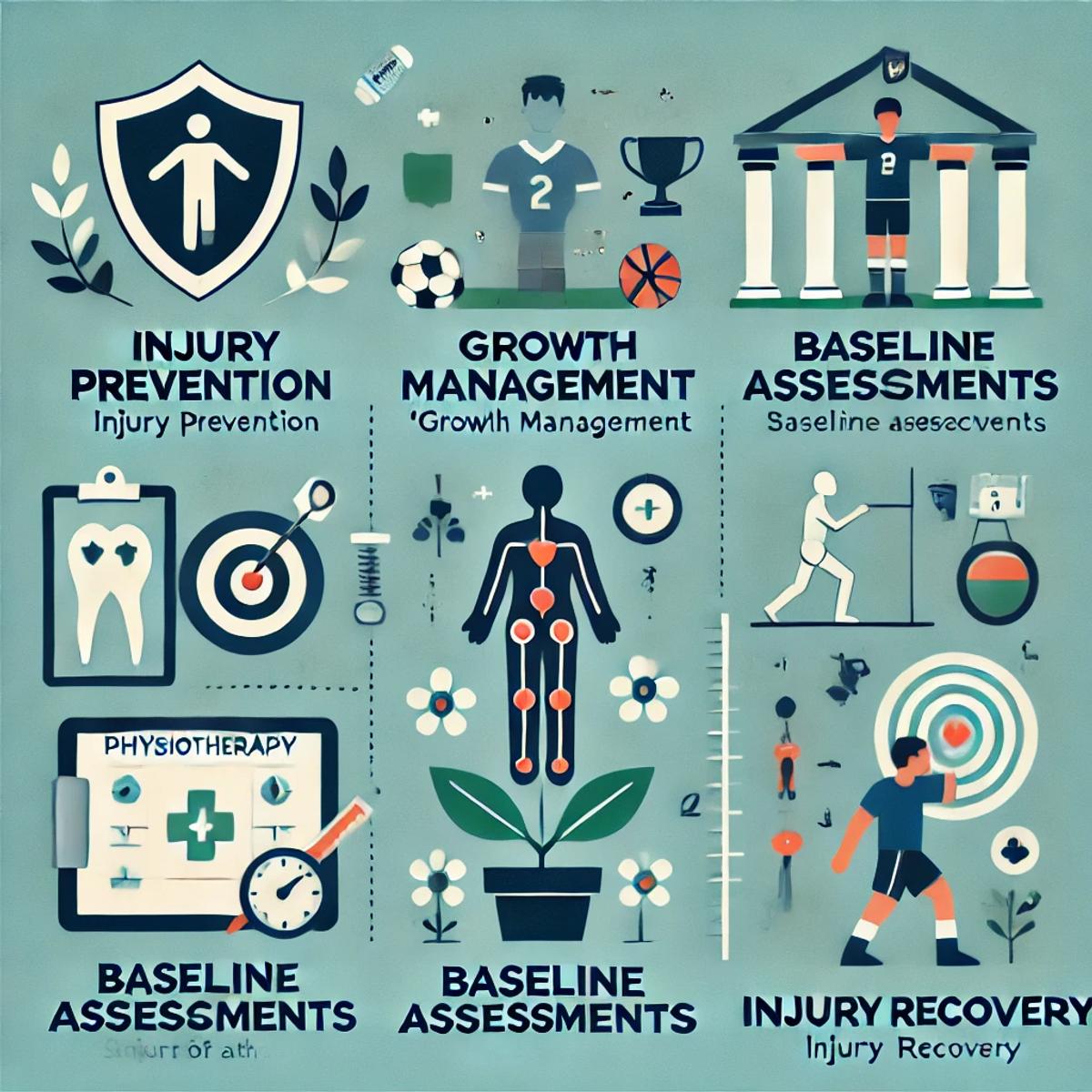Physio at Ivanhoe Edge

The Importance of Physio Screenings for Injury Reduction
One of the key elements in ensuring our student-athletes stay healthy and perform at their best is regular physio screenings. These screenings play a crucial role in both the reduction and management of injuries, especially for teenagers, who are often experiencing rapid growth and development.
During adolescence, young athletes can go through growth spurts that make them more vulnerable to injuries. Physio screenings help us track growth rates and identify when students are in high-risk stages of development, such as when muscles, bones, and tendons might grow at different rates, leading to imbalances and increased stress on the body. By understanding these changes, our coaches and physio team can tailor training programs to reduce the likelihood of injury, focusing on areas that may need extra strength or flexibility work.
These screenings also provide a baseline assessment of each student’s mobility, strength, and stability. This information is invaluable because it allows us to spot underlying issues— like muscle imbalances, poor movement patterns, or tightness in certain areas —before they lead to injuries. For example, by identifying a student with a tendency towards knee instability early, we can implement specific exercises to strengthen the surrounding muscles and prevent common injuries like sprains or strains.
Beyond prevention, physio screenings are essential for managing existing injuries. If a student has previously suffered an injury, the physio team can monitor their recovery and ensure they aren’t being pushed too hard, too soon. It ensures that students return to their sport with the proper strength and range of motion, minimising the risk of re-injury. This careful approach allows our students to get back to doing what they love safely and confidently.
With the guidance of Amy O'Shannassy and her team, some of our Ivanhoe Edge students will have the opportunity to participate in these screenings in 2025 which will help to equip them with the knowledge they need to train smarter, recover better and build a foundation for a lifelong love of sport. This connection will allow us to refer our students for treatment and assessments as required and with regular communication, our team will be able to adjust student programs more effectively.

